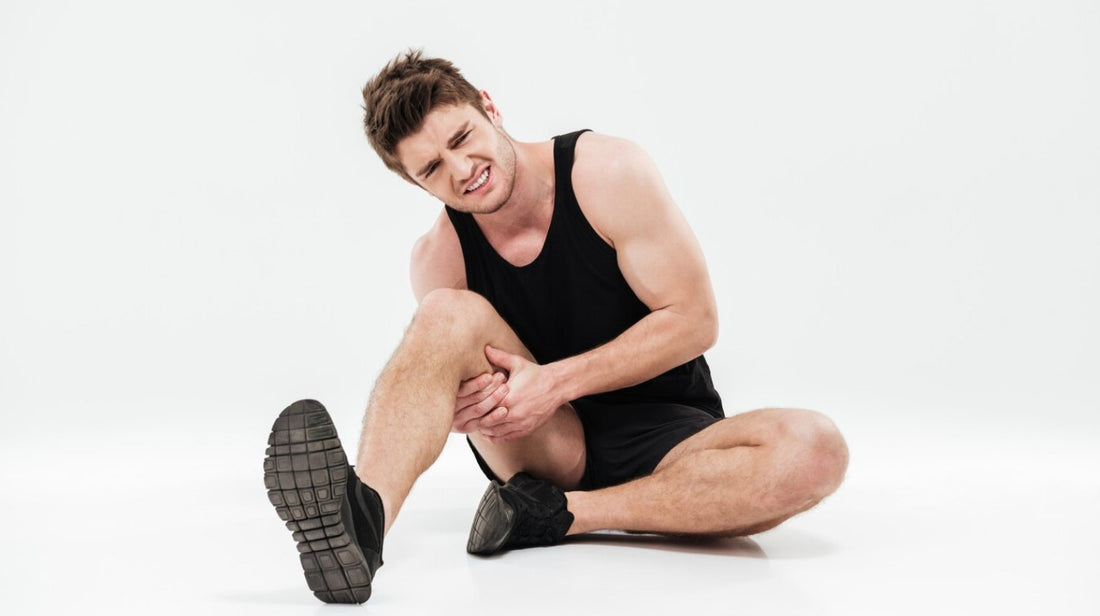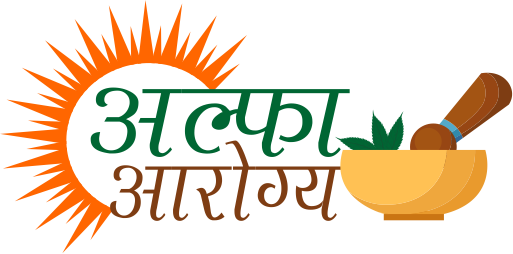
How to Get Instant Relief From Muscle Pain After Workout
Muscle pain after a workout, often felt as a dull ache or a sharp pain, is a common experience for many, especially those new to exercise or those pushing their limits. This pain, known as delayed onset Muscle Soreness (DOMS), can hinder fitness progress and overall well-being. Understanding the difference between normal muscle soreness and potential injury is crucial for effective management and recovery.
Understanding Muscle Pain After Workouts
Exercising, especially during weight lifting or intense physical activity, creates tiny tears in your muscle fibers. This is an ordinary and necessary part of building stronger muscles. However, it can lead to muscle soreness or stiffness 24 to 72 hours after the workout, known as DOMS. This differs from the acute pain you might feel during or immediately after exercise due to an injury or strain.
Ayurvedic Perspective on Muscle Pain
In Ayurveda, muscle pain post-exercise is often seen as an imbalance in the body's doshas, particularly an aggravation of Vata dosha, which governs movement and flexibility. Ayurvedic treatments focus on restoring balance through natural remedies, including herbal oils and massages.
Ayurvedic Oils for Muscle Pain Relief
- Ayurvedic oils, known for their healing properties, can relieve muscle pain and soreness. When massaged into the skin, they can help reduce inflammation, improve circulation, and promote muscle relaxation.
- Our traditional Ayurvedic oil for pain relief is highly recommended for muscle and joint pain. It soothes sore muscles and supports healthy joints, tendons, and muscles.
- Recommended for muscle weakness and overall relaxation. It helps release muscle knots, reduce inflammation, and promote relaxation.
- It supports the body's natural healing process, particularly after workouts, by soothing muscle stiffness and enhancing muscle strength.
How to Use Ayurvedic Oil for Muscle Pain
- Massage: Apply Alpha 111 generously over the affected area and massage gently. Focus on areas with muscle pain or stiffness.
- Rest: Allow the oil to penetrate the skin for at least 30 minutes before washing off with warm water.
Benefits of Abhyanga with Specific Oils for Different Doshas
Abhyanga, or Ayurvedic oil massage, is beneficial for soothing sore muscles and promoting relaxation:
- Mahanarayan Oil: A blend of nearly 30 herbs, it is ideal for muscle pain relief.
- Alpha 111 by Alpha Arogya: An Ayurvedic oil designed for body aches, can be massaged into the muscles for relief.
Immediate Steps for Relief from Muscle Pain
It's common to experience muscle soreness or stiffness after a rigid workout. Alpha Arogya presents an approach to managing post-workout muscle pain, blending modern fitness knowledge with the ancient wisdom of Ayurveda. You can take immediate steps using Alpha Arogya's Alpha 111, an Ayurvedic oil designed for muscle pain relief and other natural remedies.
Cool Down and Gentle Stretching
Importance of Cooling Down
Cooling down after a workout is crucial as it helps gradually reduce the heart rate and prevents blood pooling in the muscles, which can lead to dizziness or fainting.
It also facilitates the removal of metabolic by-products like lactic acid, reducing the risk of muscle stiffness and soreness.
Simple Stretches for Major Muscle Groups
Incorporate stretches for all major muscle groups you've worked on during your session. Focus on static stretches where you hold a position for about 30 seconds to improve flexibility and reduce muscle tension. Use Alpha Arogya's Alpha 111 by gently applying it to the muscles before stretching to enhance relaxation and recovery.
Hydration and Nutrition
Role of Hydration in Muscle Recovery
Staying hydrated is essential for muscle recovery. Water aids in the transport of nutrients to the muscles, helping them repair and grow. Drink plenty of water post-workout and consider hydration supplements if you've engaged in prolonged or intense physical activity.
Anti-inflammatory Foods and Nutrients
Incorporate anti-inflammatory foods, such as omega-3-rich foods, berries, nuts, and leafy greens, into your post-workout meal. These foods can help reduce muscle inflammation and accelerate recovery.
Cold Therapy
Use of Ice Packs or Cold Baths to Reduce Inflammation
Applying ice packs or taking cold baths can help reduce muscle inflammation and soreness. This method is particularly effective for acute injuries or intense muscle pain. However, limiting cold therapy to short durations is essential to avoid skin damage.
Heat Therapy
When and How to Use Heat for Sore Muscles
Heat therapy is beneficial for muscle relaxation and relieving chronic muscle pain. A warm compress or bath can increase muscle blood flow, promoting healing and reducing stiffness.
Alpha Arogya's Alpha 111 can also be gently massaged into the muscles after heat application to enhance its soothing effects.
Ayurvedic Remedies for Muscle Pain Relief After Workouts
Muscle pain after a workout is a common issue that can hinder your fitness progress and overall well-being. Ayurveda, the ancient Indian system of medicine, offers natural remedies for muscle recovery and pain relief.
Herbal Treatments
Turmeric, Ashwagandha, and Ginger for Pain Relief and Recovery
These herbs are staples in Ayurvedic medicine due to their anti-inflammatory and pain-relieving properties:
- Turmeric: It contains curcumin, which helps reduce inflammation and pain.
- Ashwagandha: Known for reducing stress and inflammation, it also supports muscle recovery and strength.
- Ginger or Saunth form: Its active component, gingerol, has analgesic and anti-inflammatory effects, making it practical for muscle pain relief.
Yoga and Pranayama
Yoga Poses and Breathing Exercises for Recovery
Yoga and pranayama (breathing exercises) are integral to Ayurveda for maintaining balance and aiding recovery:
- Gentle yoga poses can improve flexibility and circulation, helping to ease muscle pain over time.
- Pranayama techniques can reduce stress and enhance the flow of prana (life energy), supporting muscle healing.
Ayurvedic Diet for Muscle Recovery
Diet Recommendations Based on Ayurvedic Principles
An Ayurvedic diet can support muscle recovery by including anti-inflammatory foods and spices like turmeric, ginger, and cumin. Hydration is also emphasized for its role in muscle recovery.
Diet Recommendations:
• Include lean or low-fat sources of protein such as peas, beans, nuts, seeds, and processed soy products, which are good options.
• Drink 2 to 4 liters of water daily to stay hydrated. Use apps like Hint to track your water intake.
• Consume pre-workout meals that include recommended fruits and avoid sweets and juices.
• Follow portion sizes strictly to avoid excess protein intake, which can affect calcium and iron absorption.
• Finish dinner before 9 pm and have a bedtime beverage 30 to 45 minutes before sleep.
• Limit sweeteners like sugar, agave, maple syrup, coconut sugar, and artificial sweeteners.
• Avoid deep-fried foods, full-fat dairy products, and unhealthy fats like Dalda, lard, tallow, butter, and margarine.
Dosha-Specific Tips:
• Vata: Light and warming activities like yoga and low-impact aerobics are recommended. Focus on grounding and stability.
• Pitta: Cooling exercises such as swimming and cycling are beneficial. Avoid overly competitive or overheating activities.
• Kapha: Vigorous exercises like running or high-intensity interval training (HIIT) can help stimulate Kapha types.
Want to know your body type?
To know your body type take this interesting quiz now!
Warm Baths with Ayurvedic Salts and Oils
Epsom Salts and Essential Oils for Therapeutic Baths
A warm bath with Epsom salts and essential oils can help relax muscles and ease pain. The magnesium in Epsom salts aids muscle relaxation, while essential oils provide additional therapeutic benefits.
Ayurveda offers a comprehensive approach to muscle pain relief after workouts, utilizing natural herbs, oils, dietary practices, and physical exercises like yoga. By incorporating these Ayurvedic remedies into your post-workout routine, you can enhance recovery, reduce muscle pain, and maintain a balanced state of health.
Long-Term Strategies for Muscle Pain Prevention
Muscle pain can be a setback in your fitness journey, but with the right strategies, it's preventable. Alpha Arogya's Alpha 111 is designed to support these strategies, providing relief and aiding in the prevention of muscle pain.
Proper Warm-Up
Importance of Dynamic Warm-Ups
A proper warm-up prepares your body for the stress of exercise, reducing the risk of injury and muscle pain. Dynamic warm-ups involve movement-based stretching that mimics the activity you're about to perform, enhancing blood flow and flexibility. Incorporating Alpha 111's 5-minute massage during your warm-up can help loosen the muscles and make them more flexible for the workout.
Gradual Intensity Increase
Avoiding Muscle Overload
To prevent muscle pain, gradually increase the intensity of your workouts. Sudden jumps in intensity can lead to muscle strain and soreness. By progressively challenging your muscles, you allow them to adapt and strengthen over time, minimizing the risk of pain.
Rest and Recovery
Role of Rest Days and Sleep in Recovery
Rest days are essential for muscle recovery and growth. They allow your muscles to repair and strengthen, reducing the likelihood of pain. Similarly, quality sleep is vital as during this time, the body undergoes most of its repair processes. Alpha 111 can be used during rest days as part of a relaxation routine to soothe muscles and aid recovery.
Regular Massage
Massage Types and Self-Massage Tools
Regular massage is beneficial for preventing muscle pain. It can improve circulation, reduce muscle tension, and promote relaxation. Types of massage for muscle pain prevention include Swedish, deep tissue, and sports massage. Self-massage tools like foam rollers or massage balls can also be practical, mainly when used with Alpha 111, to enhance the benefits of the massage.
Advanced Relief Methods for Muscle Soreness
Foam Rolling
Foam rolling is a self-myofascial release technique that can help clear muscle tightness, soreness, and inflammation and increase joint range of motion.
It's particularly beneficial as part of a warm-up or cooldown routine. Rolling over tight spots, such as the upper back, quads, and calves, can reduce muscle soreness and improve flexibility.
Foam rolling can also be an effective tool for those who sit or stand for long periods in their job, providing relief from aches and pains.
Compression Clothing
Compression clothing aids recovery by reducing muscle damage, pain, and inflammation, enhancing circulation, and increasing body temperature.
Wearing compression garments like tights immediately after intense exercise and for an extended period can significantly improve recovery.
The pressure the garments apply helps reduce muscle oscillation during movement, easing mechanical stress on tissues and potentially reducing additional injuries.
Supplements
Alpha 111, an Ayurvedic oil, contains ingredients such as wintergreen, eucalyptus & mint, which are known for their muscle pain relief properties. You can also include powdered herbs like Wild White Musli, Mulethi, and Gokhru powder in your everyday routine to give you the energy and strength to reach your goals faster.
These natural supplements can be used alongside other recovery methods to provide a holistic approach to muscle recovery. Combining these herbs can help reduce inflammation and promote faster healing of muscle tissues.
To Conclude
Muscle pain after workouts is a common challenge, but with the right strategies, it's manageable. Integrating Ayurvedic remedies, proper warm-up and cooldown routines, nutrition, hydration, and advanced relief methods into your fitness regimen can effectively relieve muscle soreness and enhance recovery.
Consistency in these practices and seeking additional resources and professional advice when necessary will ensure you can continue to pursue your fitness goals without being held back by muscle pain. Remember, the journey to optimal health and fitness is a marathon, not a sprint; caring for your muscles is essential at every step.

